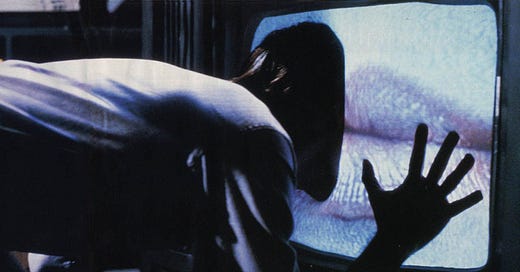The other day I googled “lethal dose sedatives” for novel-writing purposes and I immediately noticed that the usual in-built warning and helpline number were absent from the top of the search results. Instead, within the search results themselves, Facebook’s own webpage about helplines jumped out, but google itself didn’t seem to care. I was startled by this, because this base-level buffer against (let’s be real) Google’s own vulnerability to legal liability and/or bad PR seemed to be a rather absurd casualty of its increasingly worse functioning. It didn’t do much, but it felt like quite a decidedly inoffensive feature to the point that rolling it back must’ve surely been more trouble than it was worth.
We’ve all been saying for years now that Google has been working worse than usual, finally vindicating the many of us who simply preferred to text their crushes to ask them for information instead. But still, a while ago it became confirmed (I forget exactly where/how) that Google, having the comfort of virtually no competitors, had decided to make its search engine worse so that people would end up spending more time on their search pages, and therefore more time looking at ads. It’s about the same principle as when an iphone stops working two years in and you feel morally and physically bound to purchase a new one.
The internet is where a lot of people learned what suicide is, what self harm is, what depression is, etc. We found friends online who told us how to navigate these things, sometimes well, sometimes badly, to the point where it felt like a revelation to find out that feelings and experiences mirroring your own existed outside of the computer itself. It used to feel like a kind of other-world, everyone’s “irl” lives and online lives diffuse but separate, often kept secret from one another, anonymised to the point of some kind of deeper realness. Now, your real life friends are on Twitter, your family is on Instagram, your 10th grade English teacher wishes you a happy birthday on Facebook. There is a blending: the online (the real) has made its way into the real (the false), and identity must grasp for a foothold.
If you couldn't tell, I am speaking from the specific personal experience of borderline personality disorder (this is an anti-diagnosis anti-psychiatry substack, but for the record this is the label I have been benevolently granted by the establishment, and the one that helps me access medication and explain myself to those around me), and specifically, of a thing called identity diffusion. I learned this term recently, I’d been calling it identity disturbance for years, which I’m sure is also accurate. It’s the experience of not knowing who you are, basically, of having trouble identifying and holding onto what your values, beliefs, perspectives, opinions, priorities are. I have experienced this for as long as I can remember; I would say it might be the most difficult aspect of my state of chronic mental unwellness.
I always have trouble fully articulating it, and I hesitate to rely on medical definitions or descriptions of it, especially since they list things like gender dysphoria as pathologized components of it (which, I mean, whomst among us). Over the years, I’ve become better at making peace with this, but I’ve not become better at actually knowing who I am. It’s painful, not necessarily in a woe is me way, but just in that it is impossible to feel grounded, to feel real, to feel any kind of direction in my intentions, my desires — I don’t make decisions in response to my needs and my wants, I make them on the basis of what I think I’m supposed to do. I’m constantly fascinated by people who feel thirsty and then just get up and get themselves a glass of water. I am in desperate envy of people who know how they like to dress. I’m completely fixated on the idea of knowing what one wants, ever, in any way. I am afraid that any description of this makes it appear trivial, but to be genuine and not dramatic, it’s fairly debilitating. It exhausts you.
This reminds me vaguely of the lesbian masterdoc (sorry), which included something like “you liked boys based on picking one at random and just deciding you liked them”. This is kind of how it feels to make any sort of choice — what to read, to watch, to think, to want, to be curious about. There is a permanent degree of removal between my actions/decisions and their motivations, the latter obscured by a fog at all times. I am constantly guessing at my own substance. It is depressing and irritating and sometimes I whine a lot about it. Sometimes I hate past versions of myself because the present fog has taken a different shape. Sometimes I get so angry at it that I spend days crying.
But sometimes, briefly, the fog lifts, dissipates, momentarily thins. I am able to be a person in these moments; my body feels like my own, my thoughts feel like they spring from my own head, instead of being dispatches from some kind of blurred foreign transmission. I stretch my body, I pierce my eyebrow, I write stuff that is good, I watch a film because I like the director. It’s Cronenberg summer, baby.
If you enjoy EXPOSURE CITY and can’t afford a paid subscription, please consider making a one-off payment here!





